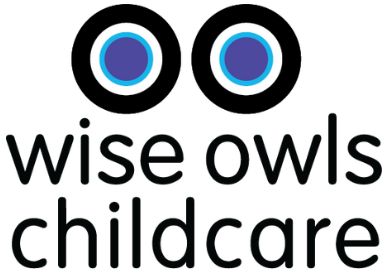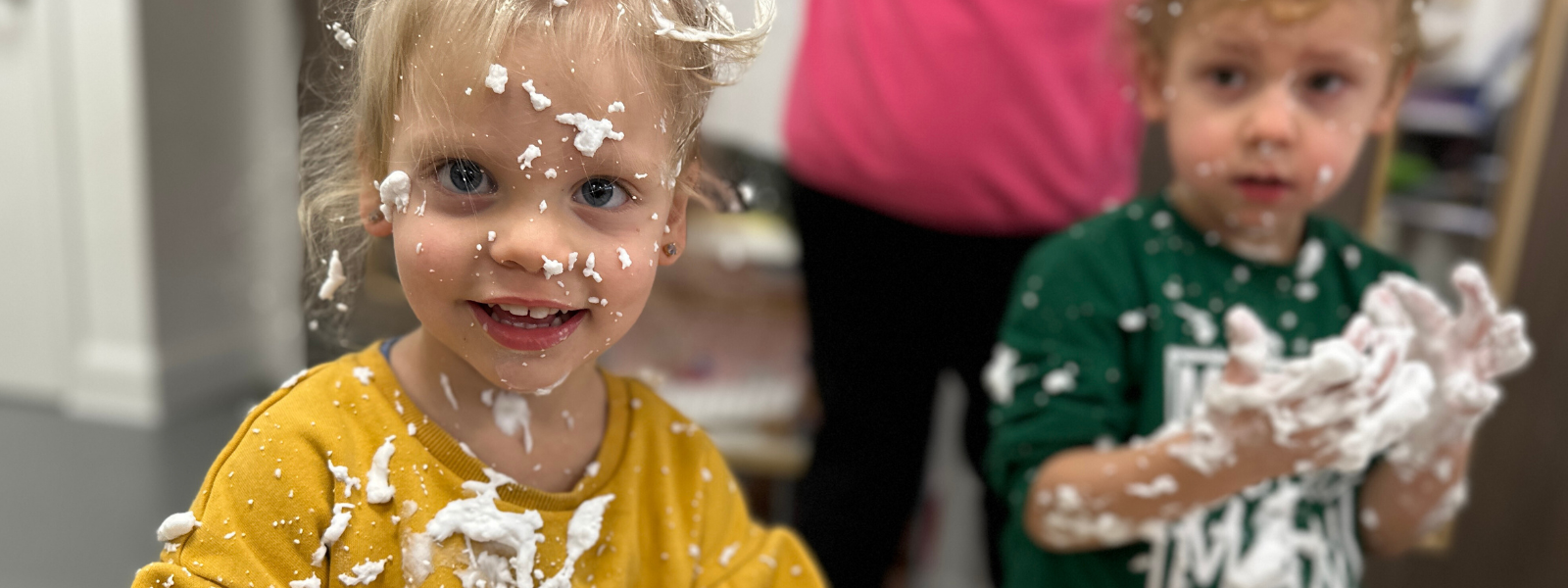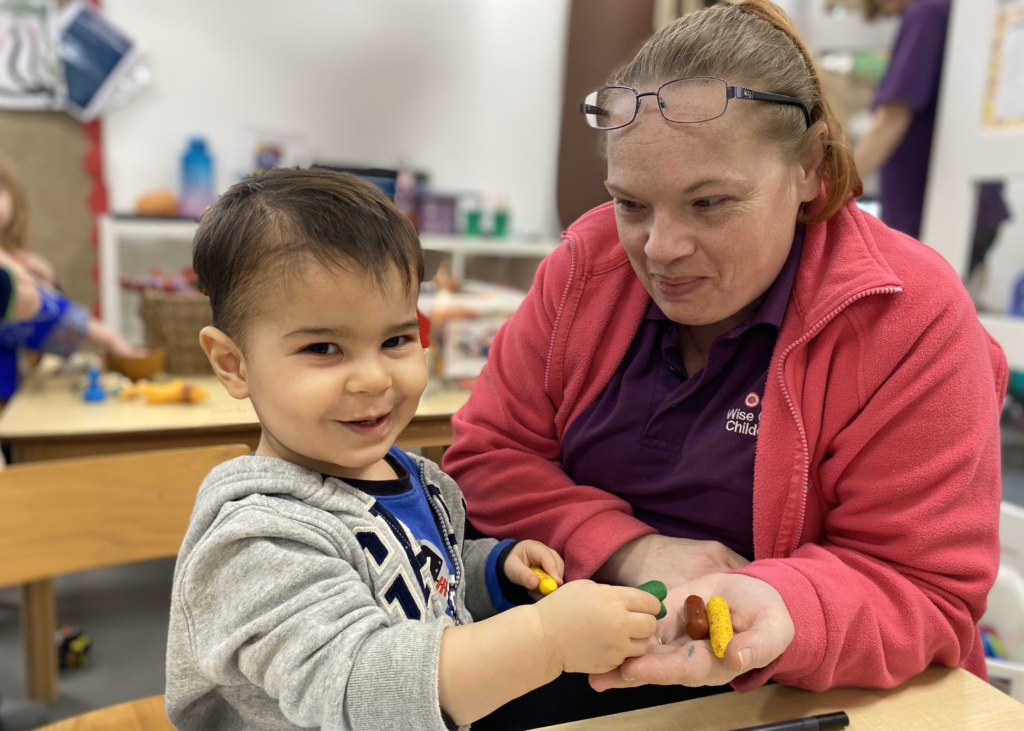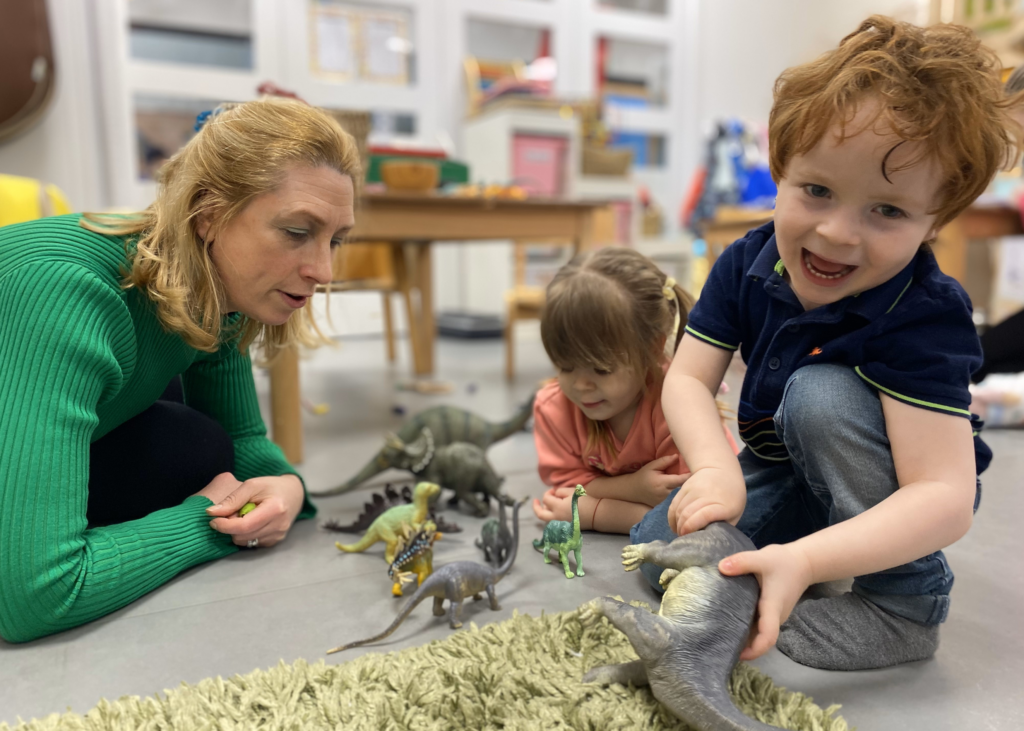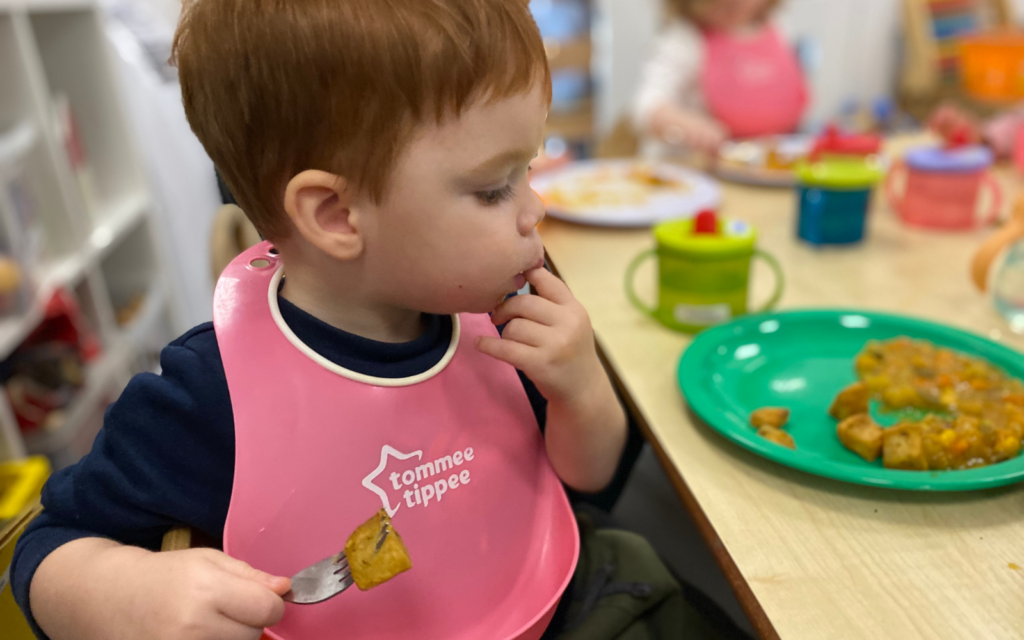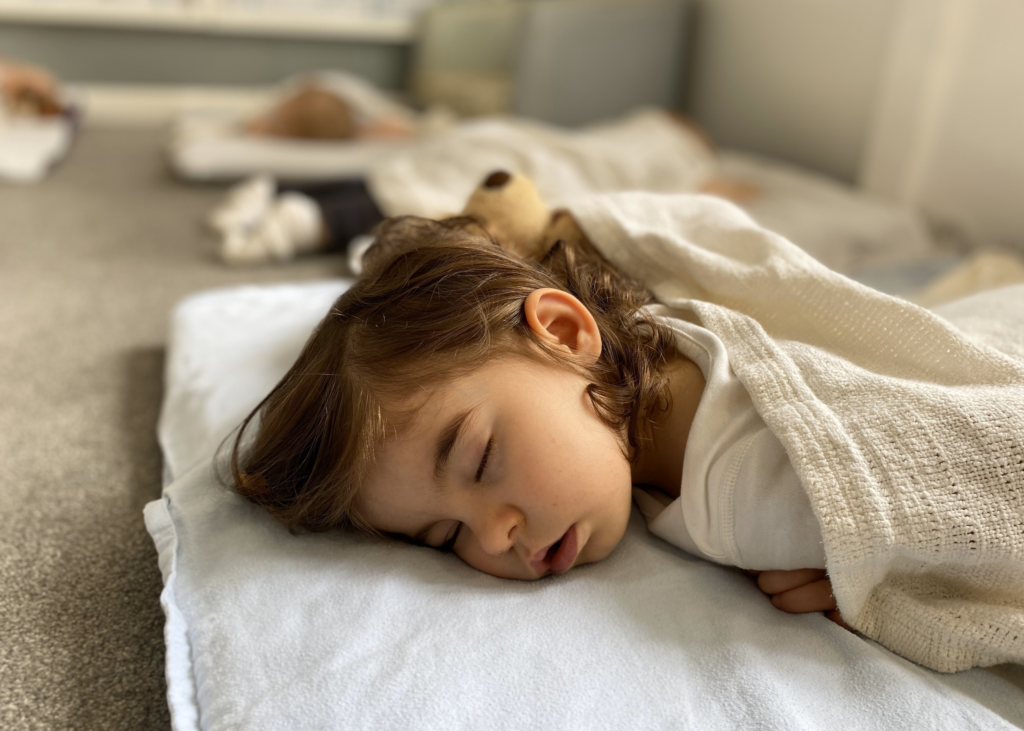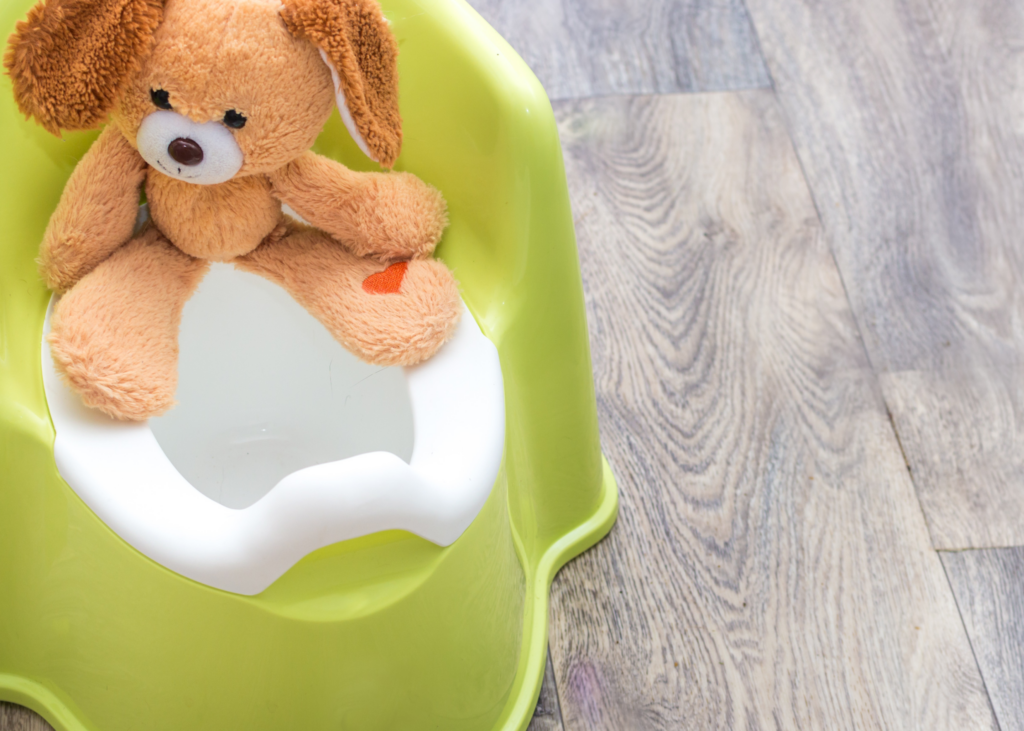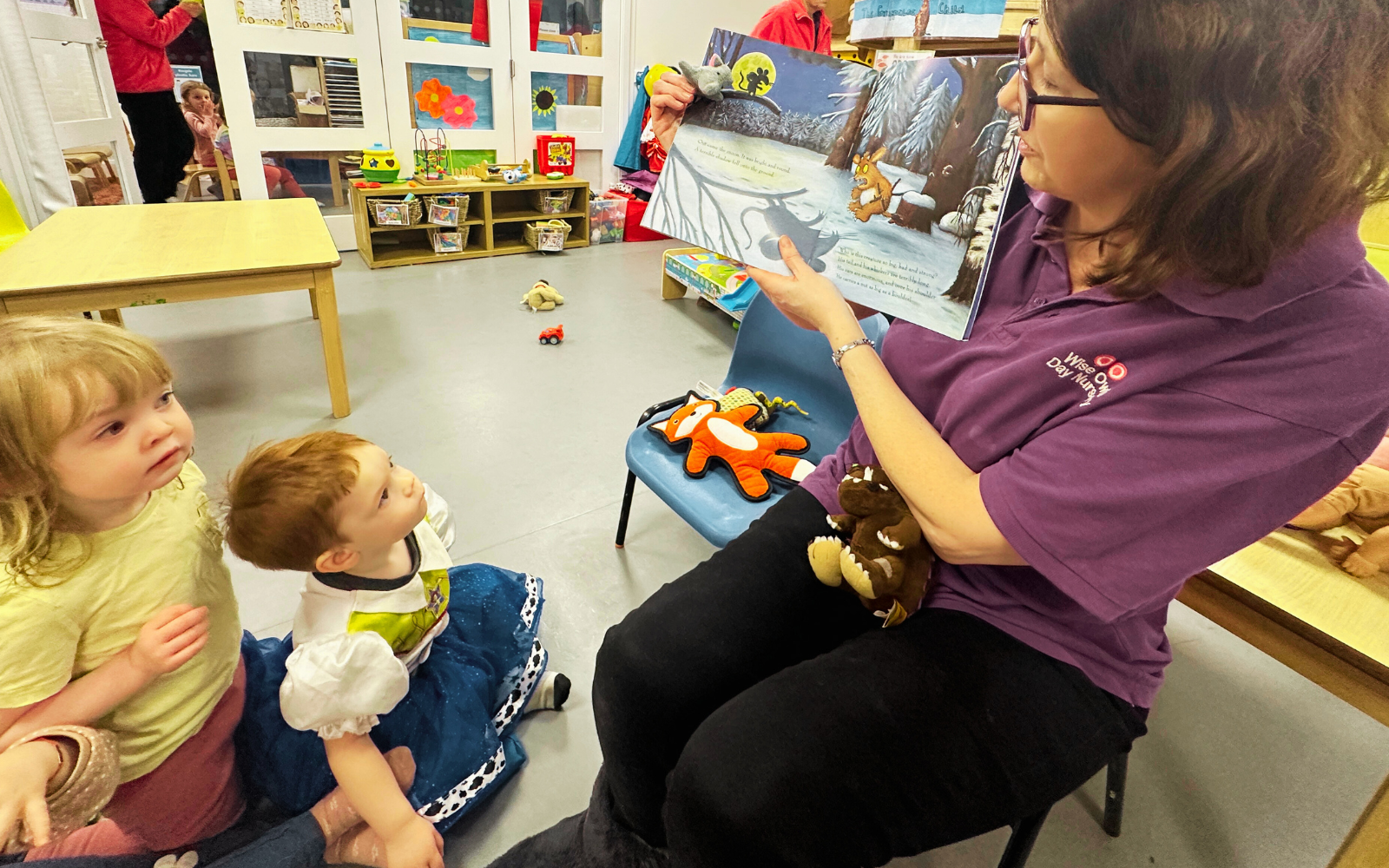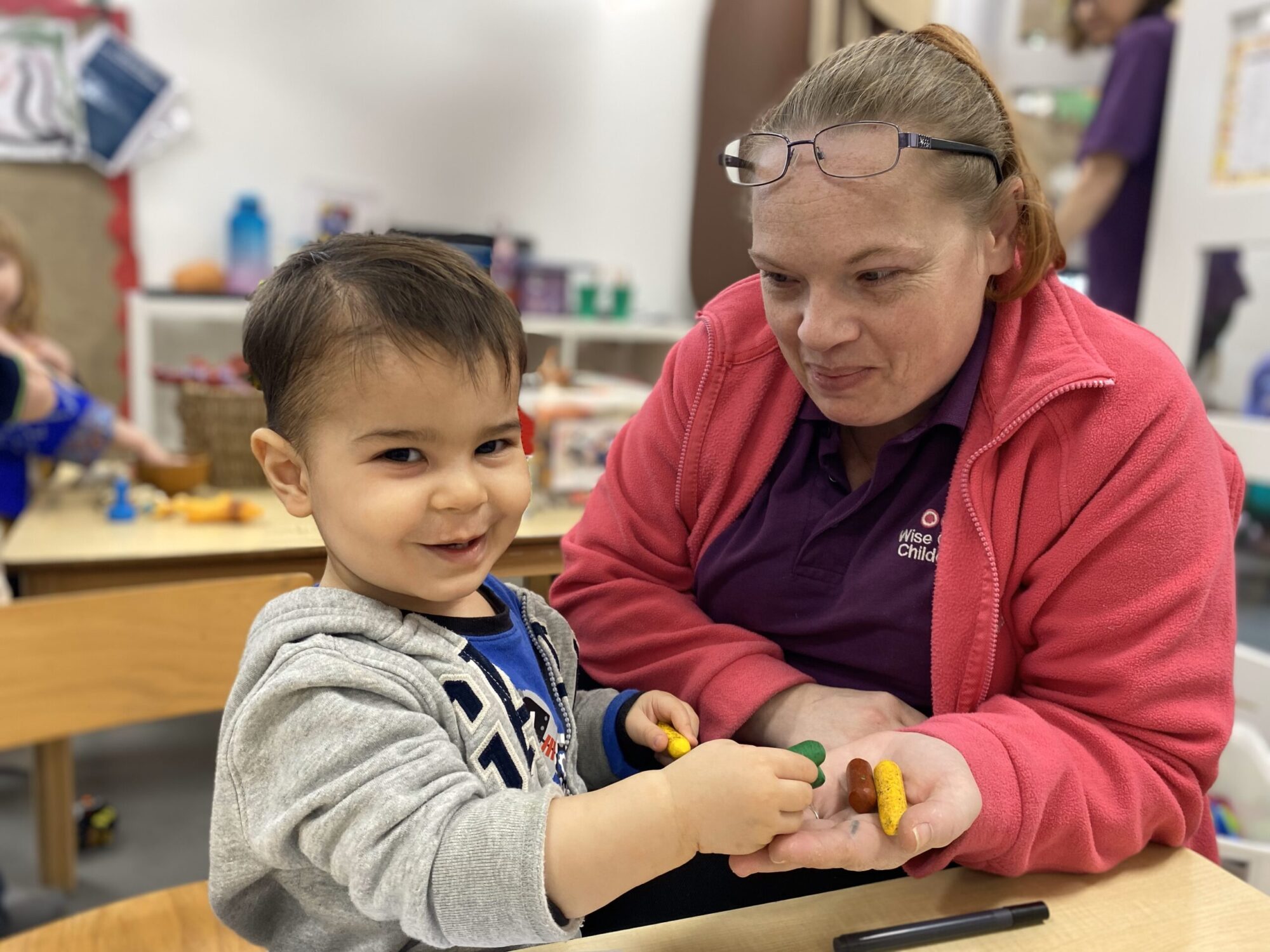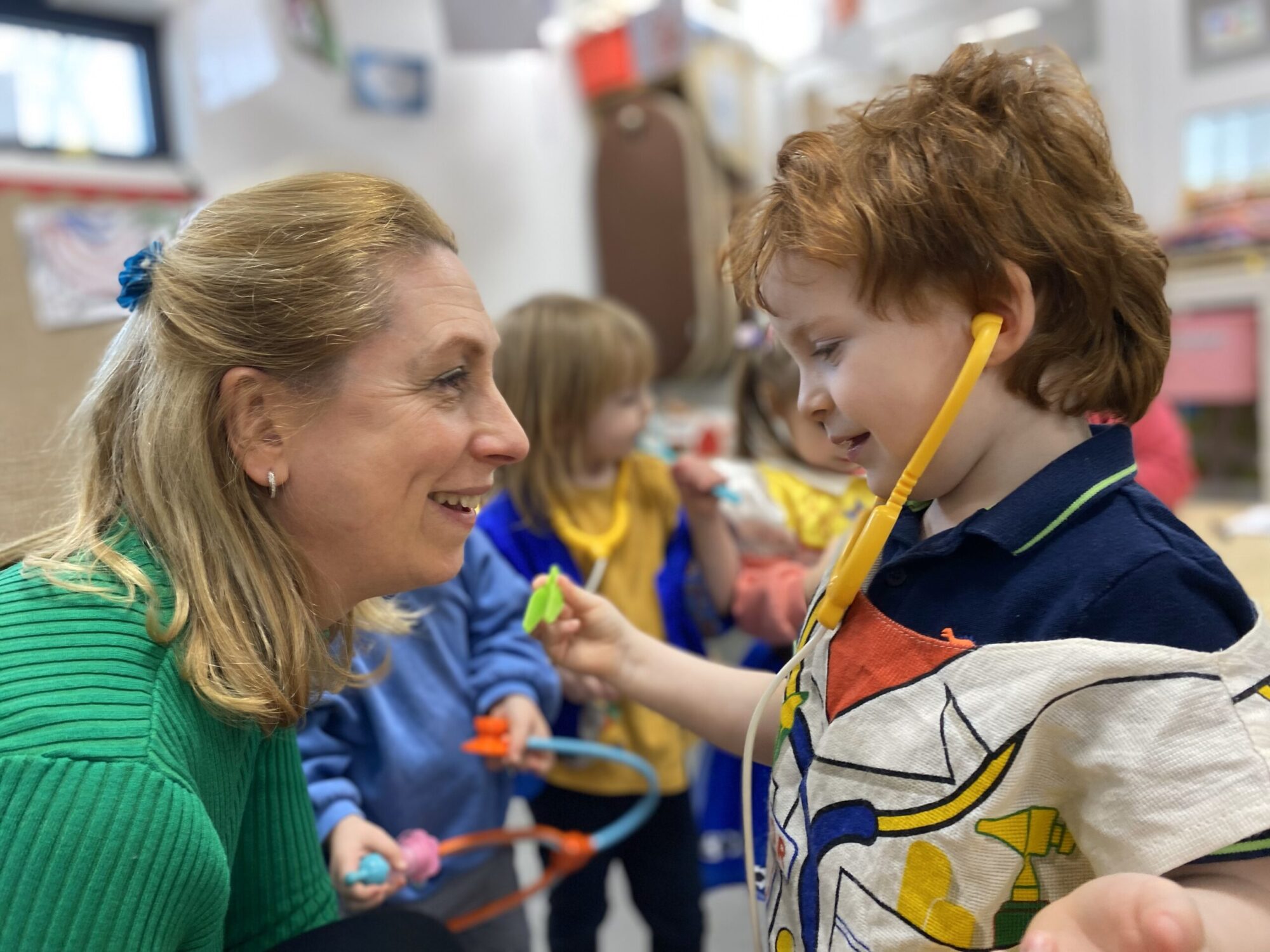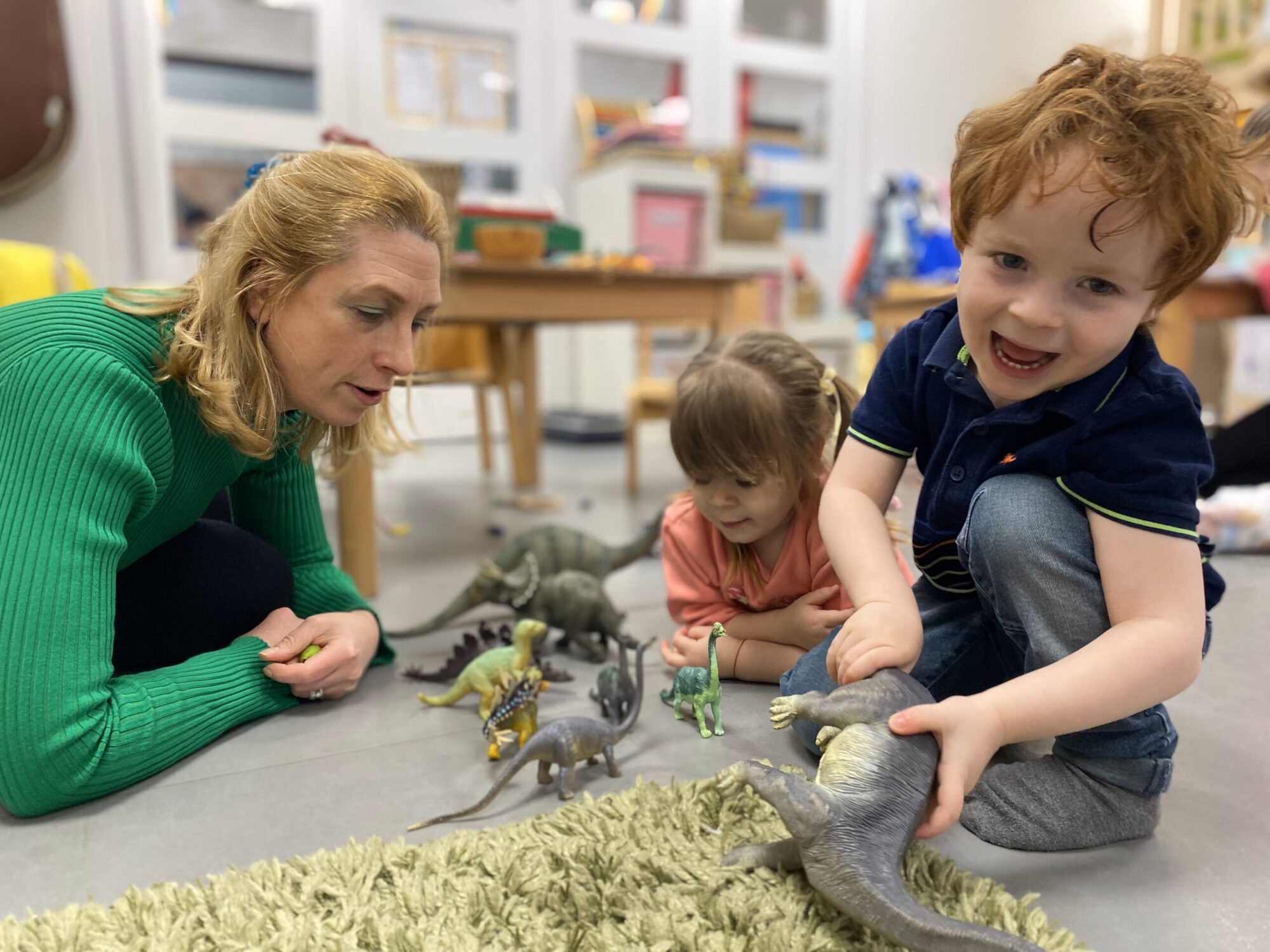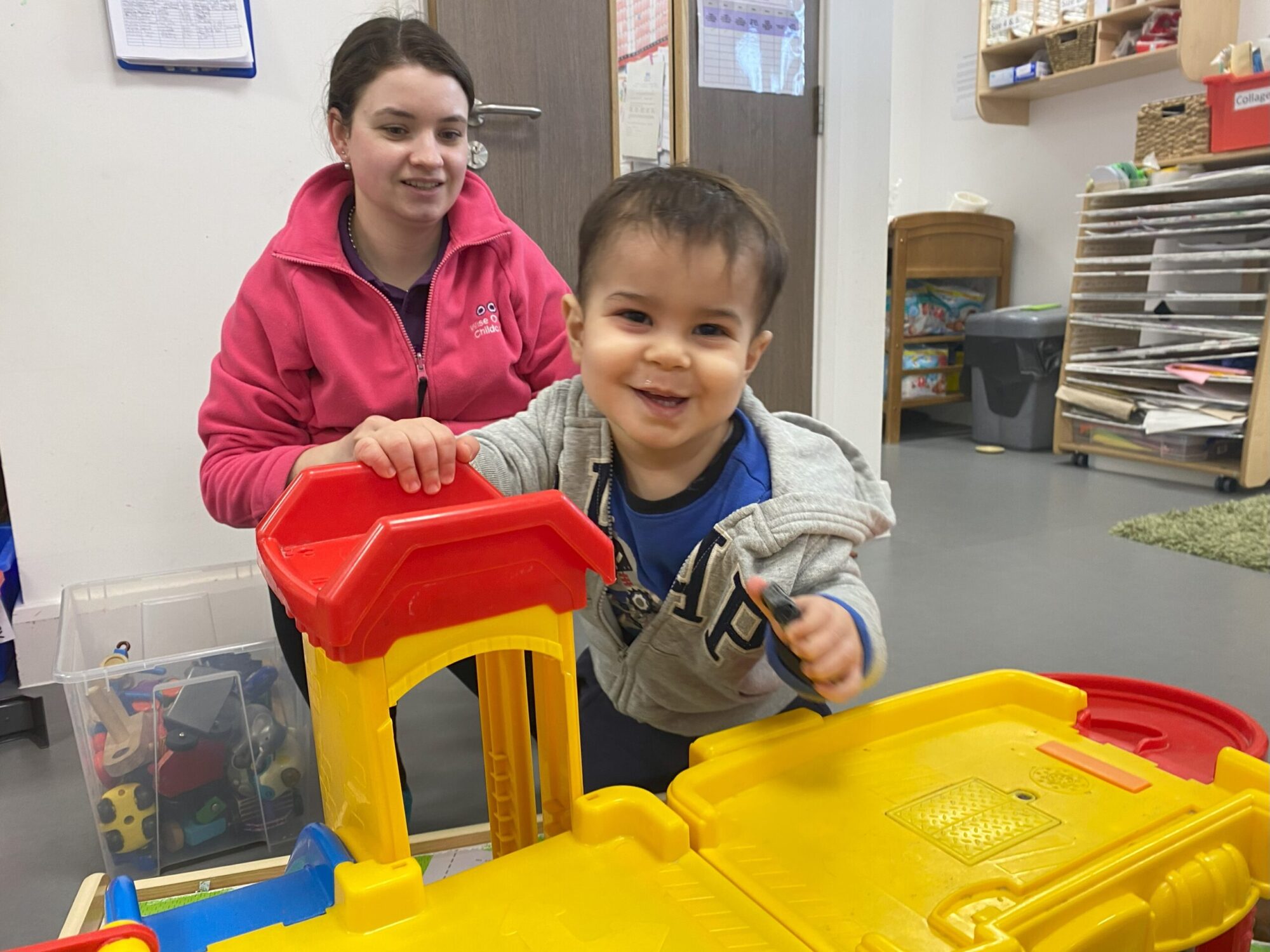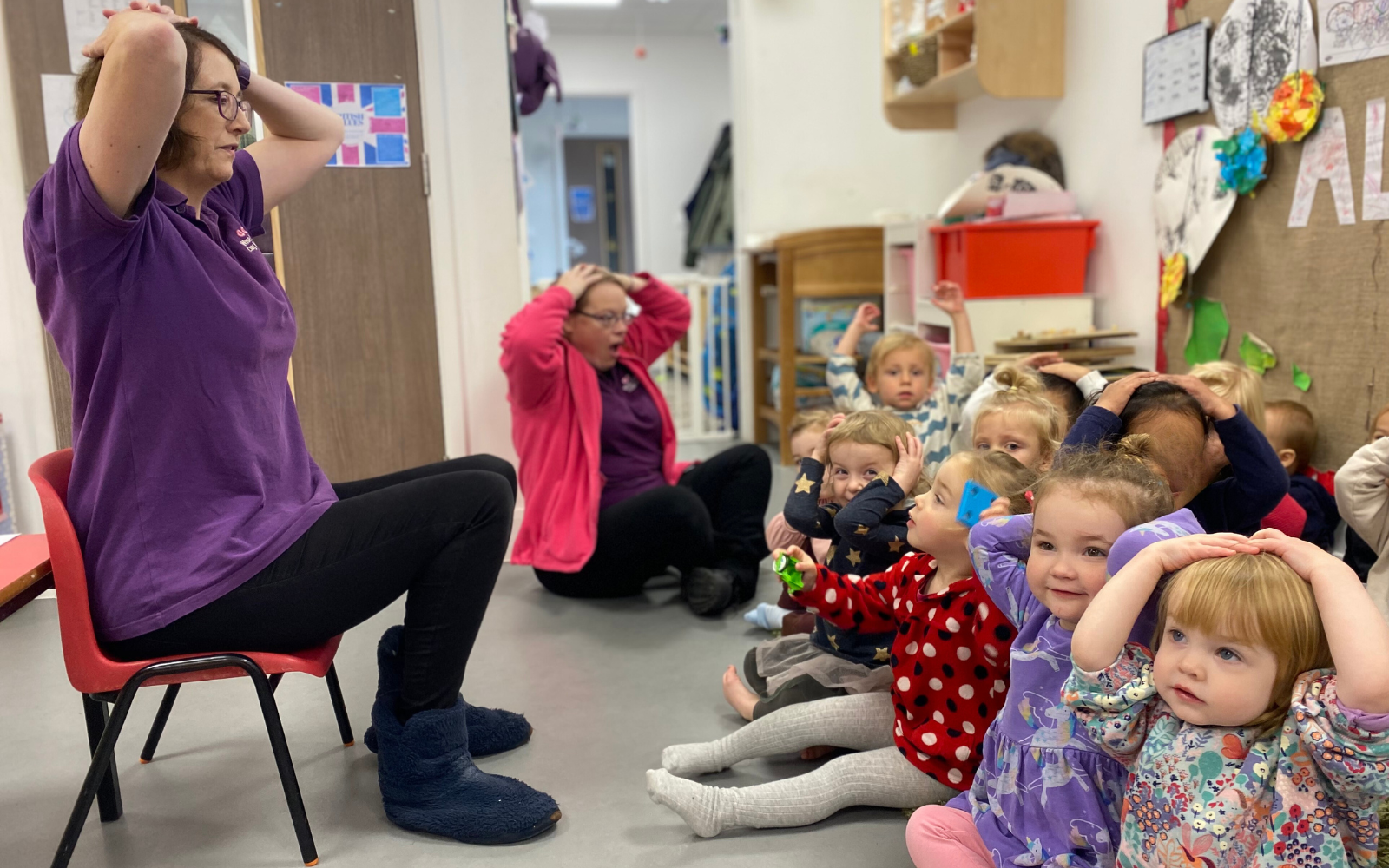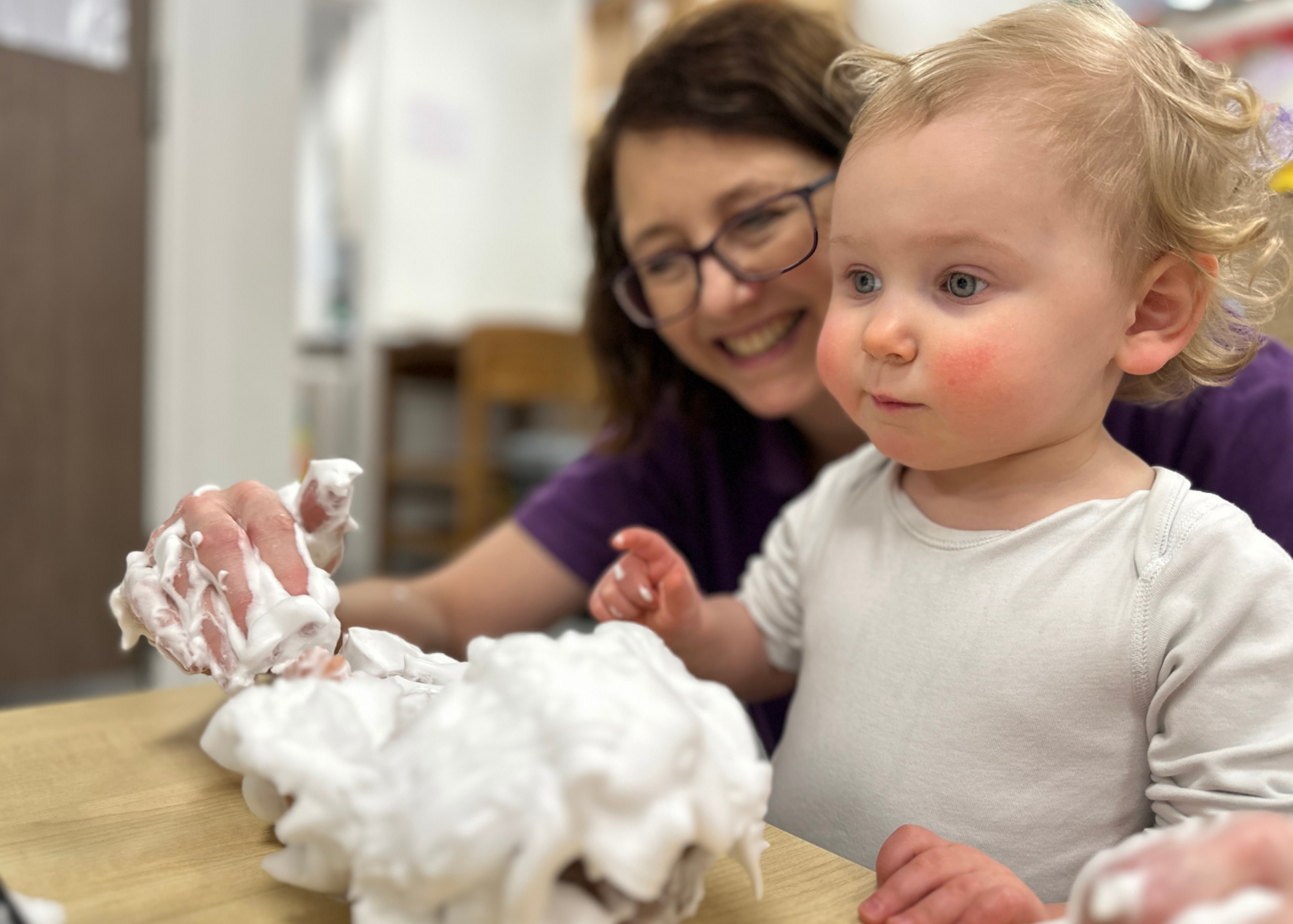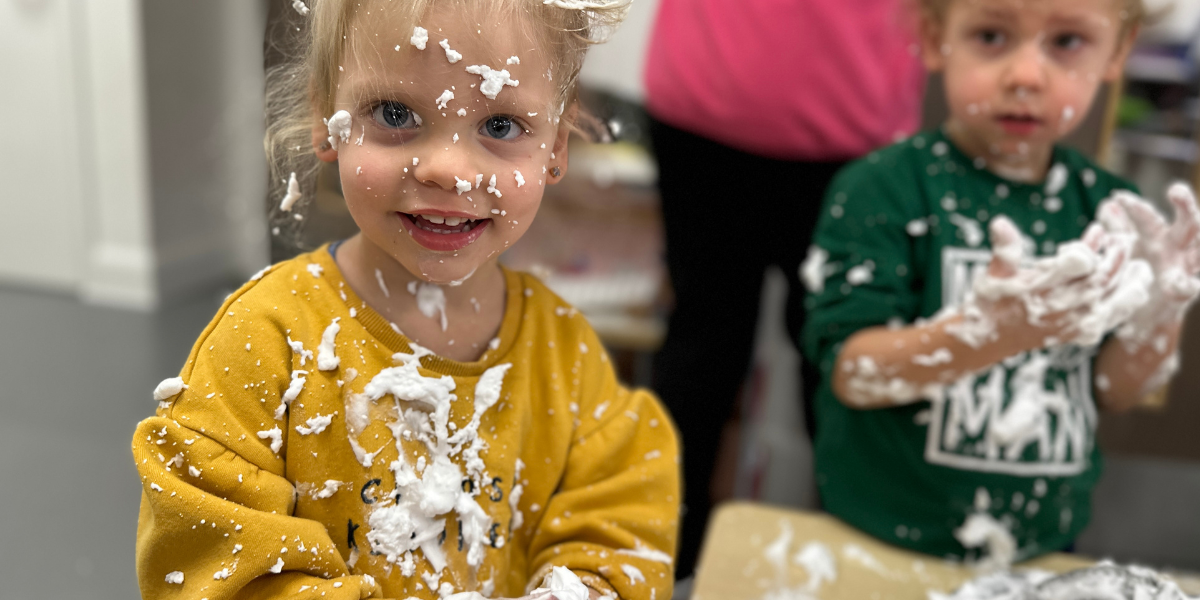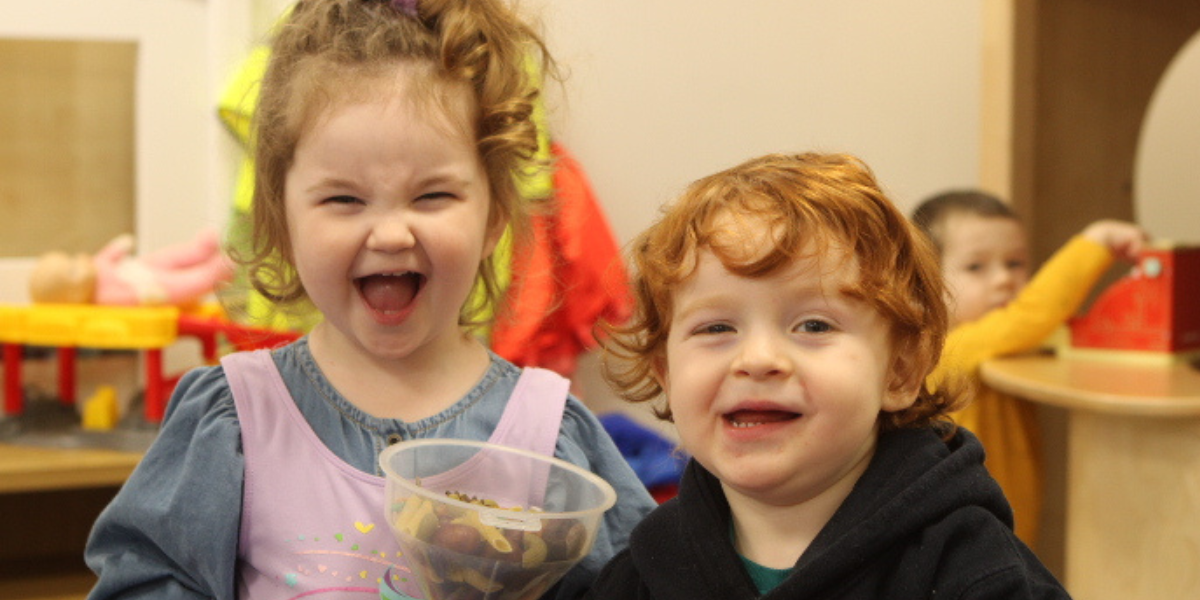In our toddler room, we can accommodate 16 children between the age of 2 and 3 years old and we aim to maintain a staff:child ratio of 1:4. Our dedicated practitioners curate activities to spark your child’s imagination and foster a love for learning all day long.
Our toddlers have an adventurous two-storey climbing castle that they love playing in. There is a quiet, cosy area with cushions for story time and outside children have access to our garden where we provide a variety of activities including arts & crafts, sand & water play, construction and more. Group time activities help our toddlers to develop important life skills including patience, cooperation, sharing and communication. We go on regular nature walks and picnics to our expansive back garden – the Braywick Nature Reserve situated directly behind the nursery and we venture out to the local library, aquarium and other places of interest to help our toddlers make sense of the world around them.
Our philosophy centres around the belief that every child is unique, with their own rhythm, interests, and pathway to development. This belief guides our approach, allowing us to tailor our care and educational activities to the individual needs of each child, fostering an environment where they can thrive at their own pace.
Breakfast
A hearty breakfast is served between 7.45-8.30am. We offer a variety of cereals and help the children to serve their own breakfast and help with pouring the milk.
Morning Routine
Following on from breakfast the children have time for some free play; independently choosing their activities from what is available to them. We set up a range of activities including sensory activities using material such as play dough, cornflour, shaving foam etc. We have themed tuff trays, painting, reading and role play available. We also have mark making tools out at all times for the children to develop their fine motor skills. During this time, we read stories and sing big actions songs as directed by the childrens’ interests. We routinely change nappies at 9.30am but nappies get checked regularly through the day and changed as and when needed. We provide all nappies and make our own wipes.
Snack time
At 9.50am we get ready for snack by encouraging hand washing and we then sit in small groups and sing & read stories until snack time at 10am. Snack consists of fruit, breadsticks, rice cakes, crackers or fruit loaf with a cup of milk or water.
After snack we either move into the garden where the children can experience some different types of sensory play, such as sand and water, construction play, and art & craft or we take the children for a walk round the nature reserve. We look at a song, story shape and colour each month and plan activities around these for the children to do within free play time if they choose to. At approximately 11.40am we encourage the children to help with tidying up the room before a story or action song.
Lunch time
At 11.50am children are asked to wash their hands and then sit at the table for lunch at 12pm. The children will self-serve their lunch with support from the staff.
12.30pm nappies are changed ready for sleep. At 12.45pm children will lay down for a sleep on the bed mats provided. If children at this age don’t require a middle of the day sleep, toddlers will play in the preschool room and garden.
Afternoon routine
After sleep, children will go to play in the garden while waiting for their friends to wake up. At 3:30pm nappies are changed again.
Tea time
Tea time at 4pm brings another moment of community and nourishment, with a variety of healthy options catered to every need.
Our day concludes with play-led learning, where our dedicated staff set up engaging activities aligned with the EYFS curriculum, fostering an environment where children can explore, learn, and grow, supported and encouraged every step of the way.
